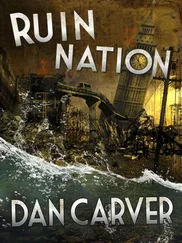Dan Singer - Start-up Nation
Здесь есть возможность читать онлайн «Dan Singer - Start-up Nation» весь текст электронной книги совершенно бесплатно (целиком полную версию без сокращений). В некоторых случаях можно слушать аудио, скачать через торрент в формате fb2 и присутствует краткое содержание. Жанр: Старинная литература, на английском языке. Описание произведения, (предисловие) а так же отзывы посетителей доступны на портале библиотеки ЛибКат.
- Название:Start-up Nation
- Автор:
- Жанр:
- Год:неизвестен
- ISBN:нет данных
- Рейтинг книги:3.5 / 5. Голосов: 2
-
Избранное:Добавить в избранное
- Отзывы:
-
Ваша оценка:
- 80
- 1
- 2
- 3
- 4
- 5
Start-up Nation: краткое содержание, описание и аннотация
Предлагаем к чтению аннотацию, описание, краткое содержание или предисловие (зависит от того, что написал сам автор книги «Start-up Nation»). Если вы не нашли необходимую информацию о книге — напишите в комментариях, мы постараемся отыскать её.
Start-up Nation — читать онлайн бесплатно полную книгу (весь текст) целиком
Ниже представлен текст книги, разбитый по страницам. Система сохранения места последней прочитанной страницы, позволяет с удобством читать онлайн бесплатно книгу «Start-up Nation», без необходимости каждый раз заново искать на чём Вы остановились. Поставьте закладку, и сможете в любой момент перейти на страницу, на которой закончили чтение.
Интервал:
Закладка:

Conclusion
Farmers of High Tech
The most careful thing is to dare.
—SHIMON PERES
AS WE WAITED IN ONE OF THE ANTEROOMS of the President’s House, we were not sure how much time we would get with President Shimon Peres. At eighty-five, Peres is the last member of the founding generation still in high office. Peres began his career as a twenty-five-year-old sidekick to David Ben-Gurion and went on to serve in almost every ministerial post, including two stints as prime minister. He also picked up a Nobel Peace Prize along the way.
Abroad, he is one of the most admired Israelis. At home, his reputation is more controversial. Peres is known primarily as the father of the 1993 Oslo accords, which were famously instituted with a handshake between Yitzhak Rabin and Yasir Arafat in the presence of Bill Clinton on the White House lawn, but which came to symbolize, to many Israelis, false hopes, terrorism, and war.
It is hard to exaggerate Peres’s impact on Israel’s diplomacy, but this is not what we were primarily interested in talking to him about. Less well known, but no less significant, was his role as a serial entrepreneur of a very unique sort—a founder of industries. He never spent a day of his life in business. In fact, he told us that neither he nor Ben-Gurion knew anything about economics. But Peres’s approach to government has been one of an entrepreneur launching start-ups.
Peres grew up on a kibbutz before the founding of the state. It wasn’t just the social and economic structure of this Israeli invention that was innovative; its very means of sustenance represented a huge departure. “Agriculture is more revolutionary than industry,” Peres was quick to point out as we finally settled into his book-lined office, surrounded by mementos from Ben-Gurion and world leaders.
“In twenty-five years, Israel increased its agricultural yields seventeen times. This is amazing,” he told us. People don’t realize this, Peres said, but agriculture is “ninety-five percent science, five percent work.”
Peres seemed to see technology everywhere, and long before Israelis themselves thought in such terms. This may have been one of the reasons Ben-Gurion backed Peres so strongly; the “Old Man” was also fascinated by technology, he told us. “Ben-Gurion thought the future was science. He would always say that in the army it’s not enough to be up to date; you have to be up to tomorrow,” Peres recalled.
So Ben-Gurion and Peres became a technological tag team. Peres and American swashbuckler Al Schwimmer started dreaming up an aeronautics industry while flying over the Arctic in 1951. But when they got back to Israel, they were met with stiff opposition. “We can’t even make bicycles,” ministers told Peres, in days in which a nascent bicycle industry was indeed failing, refugees were continuing to flood into the country, and basic foodstuffs were still being rationed. But with Ben-Gurion’s backing, Peres was able to prevail.
Later on, Peres’s idea of starting a nuclear industry was similarly written off. It was seen as too ambitious, even by Israeli scientists in the field. The finance minister, who believed that the Israeli economy should focus on textile exports, told Peres, “It’s very good you came to me. I shall make sure you won’t get a penny.” So with typical disregard for the rules, Ben-Gurion and Peres somehow funded the project off-budget and Peres went around the established scientists, turning instead to students at the Technion, some of whom he sent to France for training.
The result was the nuclear reactor near Dimona, which has operated since the early 1960s without mishap and has reportedly made Israel a nuclear power. As of 2005, Israel was the world’s tenth-largest producer of nuclear patents. 1
But Peres didn’t stop there. As deputy minister of defense, he pumped money into defense R&D, to the dismay of the military leadership, which, perhaps understandably, was more concerned about chronic shortages of weapons, training, and manpower.
Today, Israel leads the world in the percentage of its GDP that goes to research and development, creating both a technological edge critical to national security and a civilian tech sector that is the main engine of the economy. The key, however, is the way the entrepreneurial nation building Peres embodies has morphed into a national condition of entrepreneurship.
This transformation was not easy, planned, or foreseen. It came later than Israelis would have liked—there was a “lost decade” of low growth and hyperinflation between the founders’ era of high growth and the current era of high tech. But it came, and a thread runs through the founders’ time of draining swamps and growing oranges to today’s era of start-ups and chip designers.
Today’s entrepreneurs feel the tug of this thread. While the founders’ milieu was socialist and frowned on profit, now “there’s a legitimate way to make a profit because you’re inventing something,” says Erel Margalit, one of Israel’s top entrepreneurs. “You’re not just trading in goods, or you’re not just a finance person. You are doing something for humanity. You are inventing a new drug or a new chip. You feel like a falah [“farmer” in Arabic], a farmer of high tech. You dress down. You’re with your buddies from the army unit. You talk about a way of life—not necessarily about how much money you’re going to make, though it’s obviously also about that.” For Margalit, innovation and technology are the twenty-first-century version of going back to the land. “The new pioneering, Zionist narrative is about creating things,” he says.
Indeed, what makes the current Israeli blend so powerful is that it is a mashup of the founders’ patriotism, drive, and constant consciousness of scarcity and adversity and the curiosity and restlessness that have deep roots in Israeli and Jewish history. “The greatest contribution of the Jewish people in history is dissatisfaction,” Peres explained. “That’s poor for politics but good for science.
“All the time you want to change and change,” Peres said, speaking of both the Jewish and the Israeli condition. Echoing what we heard from almost every IDF officer we interviewed, Peres said, “Every technology that arrives in Israel from America, it comes to the army and in five minutes, they change it.” But the same thing goes on outside the IDF—an insatiable need to tinker, invent, and challenge.
This theme can be traced to the very idea of Israel’s founding. The modern state’s founders—or national entrepreneurs —were building what might be called the first “start-up nation” in history.
Many other nations, of course, have emerged from scratch, at the stroke of a departing colonial power’s pen. Neighboring Jordan, for example, was created in 1921 by Winston Churchill, who decided to hand the Hashemite clan a kingdom.
Other countries, like the United States, were the product of a truly entrepreneurial or revolutionary process, rather than a national amalgamation that had accrued slowly over centuries, such as England, France, and Germany. None, however, were the result of such a conscious effort to build from scratch a modern reincarnation of an ancient nation-state.
Some modern countries, of course, can trace their heritage back to ancient empires: Italy to the Romans, Greece to the Greeks, and China and India to peoples who lived in those areas for thousands of years. But in all these other cases, either the original commonalty continued in an unbroken chain from the ancient generations to the modern one, without ever completely losing control of its territory, or the ancient people simply disappeared, never to be heard from again. Only Israel’s founders had the temerity to try to start up a modern first-world country in the region from which their ancestors had been exiled two thousand years earlier.
Читать дальшеИнтервал:
Закладка:
Похожие книги на «Start-up Nation»
Представляем Вашему вниманию похожие книги на «Start-up Nation» списком для выбора. Мы отобрали схожую по названию и смыслу литературу в надежде предоставить читателям больше вариантов отыскать новые, интересные, ещё непрочитанные произведения.
Обсуждение, отзывы о книге «Start-up Nation» и просто собственные мнения читателей. Оставьте ваши комментарии, напишите, что Вы думаете о произведении, его смысле или главных героях. Укажите что конкретно понравилось, а что нет, и почему Вы так считаете.












